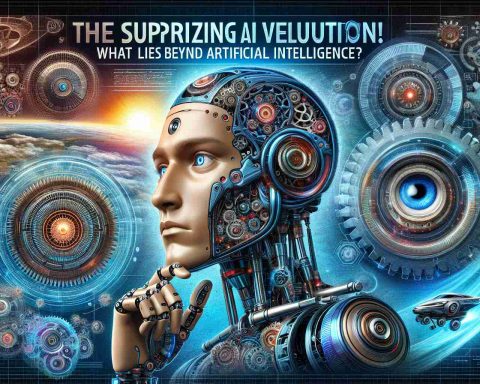The global AI race is not just about technological supremacy; it’s a journey through uncharted ethical territories. With the acceleration of artificial intelligence development, nations are not only vying for dominance but also grappling with profound moral questions.
Emerging Power Dynamics: As countries pour unprecedented resources into AI research, new power dynamics are emerging. Nations like the United States and China lead the charge, leveraging AI to boost economic and military capabilities. This race is creating geopolitical shifts akin to the space race of the mid-20th century.
Ethical Quandaries: In pursuit of technological advancement, the AI race opens new ethical dilemmas. There’s a growing concern about algorithmic bias, data privacy, and the displacement of human labor. Decision-makers face unprecedented challenges in crafting regulations that ensure AI benefits humans while avoiding unintended harm.
The Role of Collaboration: To address these issues, international collaboration is crucial. Joint efforts in setting standards and sharing research can prevent an uneven landscape where advanced AI is a privilege of the few. Such cooperation could set the stage for a more balanced and equitable future.
The Call for Inclusive Dialogues: As we advance into the age of AI, it’s imperative to include diverse voices in the conversation. For AI to serve humanity positively, ethical considerations must become central to research agendas and policy frameworks.
In conclusion, the AI race is not merely about technological prowess; it’s a complex interplay of ethics, power, and international relations. The future of AI will be shaped by how these issues are navigated today.
AI’s Influence on Everyday Lives: Unseen Impacts and Surprising Trends
The AI revolution is not merely an international contest of dominance; it’s a force subtly reshaping the very fabric of our daily lives. As nations accelerate their AI advancements, how does this ripple into the streets and cities globally? Surprisingly, AI is revolutionizing more than just technology sectors.
Unexpected Cultural Shifts: The proliferation of AI technologies reshapes social norms and customs. From virtual personal assistants altering communication habits to AI-powered apps transforming how we consume media, AI is quietly influencing our culture. Will our future interactions be dictated by algorithms? Moreover, the reliance on AI for personalized experiences may limit human exposure to diverse perspectives, raising questions about cultural homogenization.
Sociopolitical Consequences: In countries with burgeoning AI industries, citizens face both empowerment and disenfranchisement. While AI-driven solutions bring efficiencies and innovations, they can also exacerbate inequality. The digital divide is widening; those without access to AI tools find themselves at a disadvantage, economically and socially. What steps can governments take to bridge this divide?
Environmental Concerns: Often overlooked, AI’s environmental impact is significant. The vast computational power required for AI systems contributes substantially to carbon footprints. Though AI can aid in environmental analytics, are we considering its ecological cost?
Economic Disruption and Opportunities: While AI may displace certain job categories, it also creates unprecedented opportunities for innovation and entrepreneurship. How can education systems adapt to equip future generations with the skills needed in this AI-driven landscape?
Exploring these facets illustrates AI’s profound influence, extending beyond its technological origins. With these developments, the need for comprehensive policies that anticipate AI’s multi-faceted impacts is crucial. For further exploration into AI’s transformative influence, visit World Economic Forum and Brookings Institution.

















